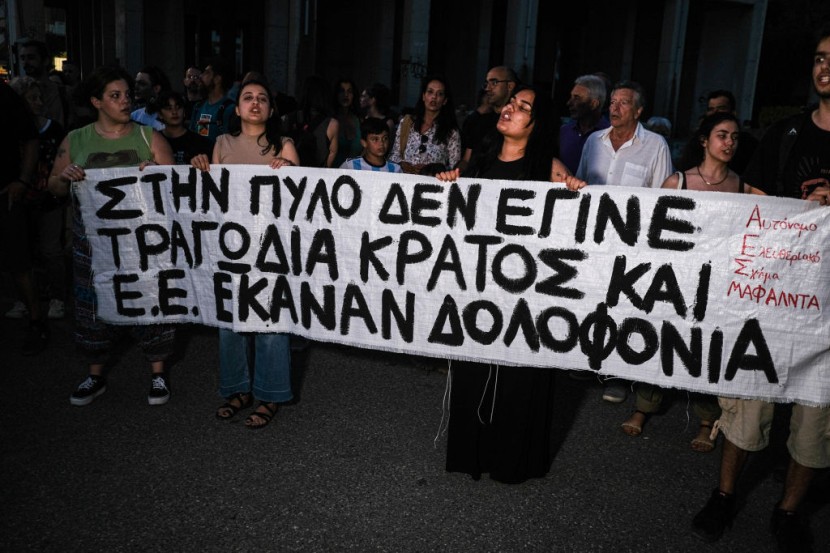
Nine crew members who survived the migrant boat that sank off the coast of Pylos, Greece, this week were arrested for smuggling hundreds of people into Europe.
The Hellenic Coast Guard said the nine crewmen were Egyptian nationals aged between 20 and 40. The crew were also arrested on suspicion of setting up a criminal organization, manslaughter by negligence, exposure to danger, and causing a shipwreck after two days of interrogations.
The arrested crew would be expected to appear in court by Monday.
According to survivors, the boat traveled from the Libyan coastal city of Tobruk en route to Italy when it capsized in the Mediterranean. At least 78 people were confirmed dead, with reports saying up to 750 more were trapped on board.
Of the 100 survivors of Egyptian, Syrian, Pakistani, and Palestinian descent, 71 arrived at a registration facility in Athens Friday. All of the survivors were men, but witness accounts say many women and children were on board, most of them "isolated below deck".
Greek Authorities Criticized for its Response
Meanwhile, human rights campaigners also accused the Greek authorities of neglecting those who drowned on board as relatives arriving in Kalamata to search for relatives who were probably on board the sunken vessel.
The NGO Alarm Phone denounced the Greek government's response to the tragedy, alleging that authorities failed to acknowledge an earlier alert of the vessel being in danger. The group said authorities carried out "horrible and systematic pushback practices" to "violently [deter] people on the move."
In addition, Alarm Phone has released emails showing it contacted Greek authorities, the UNHCR, NATO, and Frontex as early as late Tuesday afternoon regarding the boat in distress.
A representative from the UNHCR told CNN they received the email from Alarm Phone and told Greek authorities to take action. Alarm Phone also showed a reply from Frontex confirming receipt of their email.
In a statement, the Hellenic Coast Guard said it repeatedly asked the boat if it needed assistance but was turned down by its captain and crew and insisted on continuing its course toward Italy. They could also not intervene with the boat without being asked for assistance as it was still in international waters. Its spokesperson Nikos Alexiou said the chances of retrieving the sunken vessel are "next to non-existent" because the area of international waters of the Ionian Sea, where the incident took place, was one of the deepest areas of the Mediterranean.
Protests on Greek Streets
On Thursday evening, groups pledging solidarity with migrants marched outside the port of Kalamata, where most of the survivors were taken ashore. There were also protests in Athens and Thessaloniki.
The Greek government has previously called for three days of national mourning, and political leaders have temporarily suspended electoral campaigns for a new round of general elections on June 25.
This did not stop Syriza party leader Alexis Tsipras from visiting Kalamata. "This incident demonstrates in the clearest way the failure of the EU to promote a structured refugee migration policy that puts human life as the first priority," he said.
Related Article: At Least 79 Migrants Dead After Overcrowded Fishing Boat Capsized








